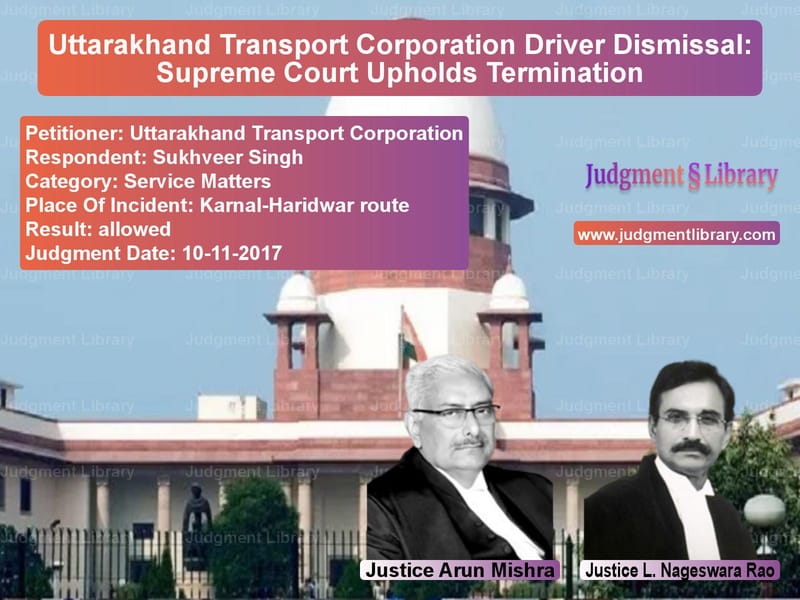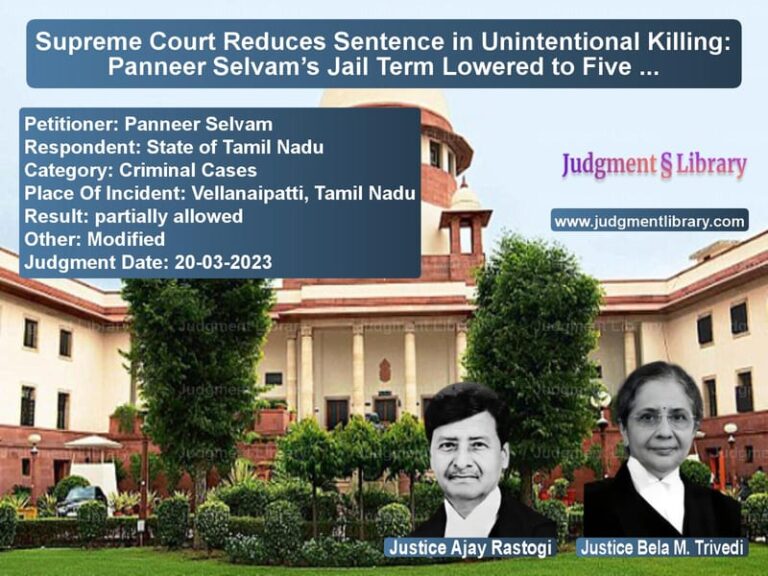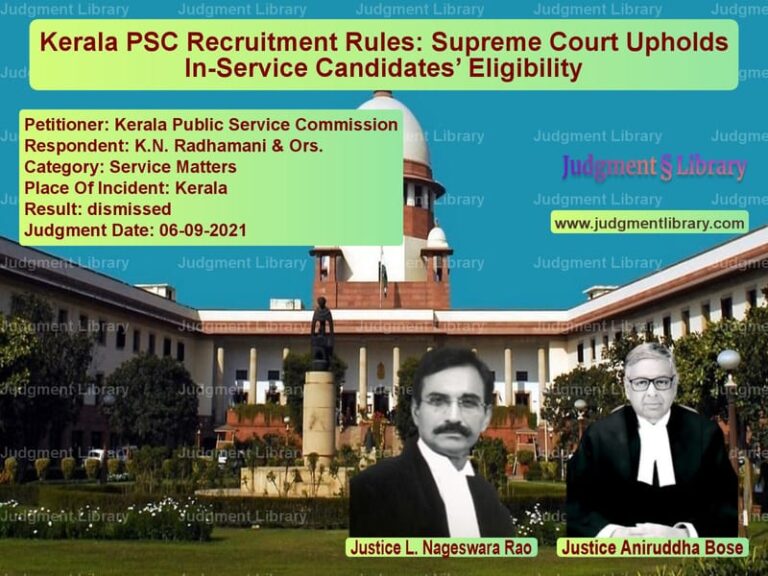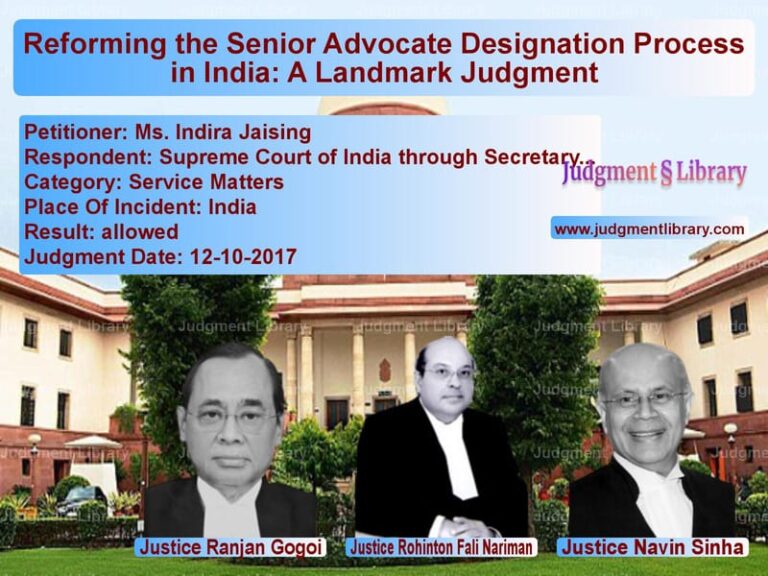Uttarakhand Transport Corporation Driver Dismissal: Supreme Court Upholds Termination
The Supreme Court of India recently ruled on a significant employment dispute in the case of Uttarakhand Transport Corporation v. Sukhveer Singh, concerning the dismissal of a driver accused of misconduct. The case addressed key legal questions regarding labor rights, procedural fairness in disciplinary actions, and the principles of natural justice.
Background of the Case
The case originated when the respondent, Sukhveer Singh, was employed as a driver with the Uttarakhand Transport Corporation (formerly known as Uttar Pradesh State Road Transport Corporation). On 27th October 1995, while driving a vehicle on the Karnal-Haridwar route, he failed to stop the bus when signaled by an inspection team. The bus was eventually stopped six kilometers later, and upon inspection, it was found that 61 passengers were traveling without tickets. This led to the initiation of disciplinary proceedings against him.
The disciplinary inquiry found that Singh had deliberately ignored the signal from the inspecting team and colluded with the conductor in allowing ticketless passengers. As a result, he was dismissed from service on 23rd April 1997, a decision upheld by the appellate authority on 25th July 2000.
Singh challenged the dismissal before the labor court, which ruled in favor of the employer. However, upon appeal, the High Court of Uttarakhand set aside the dismissal order, citing procedural lapses, and directed his reinstatement with all consequential benefits. The Transport Corporation then appealed to the Supreme Court.
Key Legal Issues
The Supreme Court examined the following legal questions:
- Was the non-supply of the inquiry report before issuing the show cause notice a violation of natural justice?
- Did Sukhveer Singh suffer prejudice due to procedural lapses in the disciplinary proceedings?
- Was the penalty of dismissal disproportionate to the offense committed?
Arguments by the Employer
The Uttarakhand Transport Corporation argued:
- The inquiry officer’s report was provided to Singh along with the show cause notice.
- Singh had the opportunity to respond to the findings before the final decision on his dismissal was made.
- There was no evidence that the non-supply of the inquiry report before the show cause notice caused any prejudice to Singh.
- The dismissal was justified as his actions involved collusion in fare evasion, which constituted corruption.
Arguments by Sukhveer Singh
Singh contended that:
- The failure to provide the inquiry report before the show cause notice violated natural justice.
- The disciplinary process was unfair, and he did not receive a fair opportunity to present his defense.
- The punishment of dismissal was excessive given the nature of the alleged offense.
Supreme Court’s Observations
The Supreme Court ruled that while an inquiry report should ideally be supplied before the show cause notice, its subsequent supply along with the notice did not automatically invalidate the disciplinary proceedings. The Court emphasized:
“Denial of a reasonable opportunity to the employee by not furnishing the inquiry report before such decision on the charges was found to be in violation of principles of natural justice. However, in the present case, the respondent received the report and was able to reply before the final decision was made.”
Addressing the issue of proportionality of punishment, the Court stated:
“It is no more res integra that acts of corruption/misappropriation cannot be condoned, even in cases where the amount involved is meager.”
Final Judgment
The Supreme Court allowed the appeal, setting aside the High Court’s decision and reinstating the dismissal order. It ruled:
- Non-supply of the inquiry report before the show cause notice did not prejudice Singh.
- The labor court had rightly upheld the dismissal.
- There was no justification to interfere with the employer’s decision to terminate the driver for misconduct.
Conclusion
The ruling reinforces the principle that procedural lapses in disciplinary inquiries must be shown to cause actual prejudice to justify intervention. It also upholds strict accountability for public transport employees engaged in misconduct, ensuring the integrity of public services. The judgment sets a precedent for cases involving labor disputes, emphasizing that violations of ethical conduct, particularly those involving financial impropriety, warrant strict penalties.
Don’t miss out on the full details! Download the complete judgment in PDF format below and gain valuable insights instantly!
Download Judgment: Uttarakhand Transpor vs Sukhveer Singh Supreme Court of India Judgment Dated 10-11-2017.pdf
Direct Downlaod Judgment: Direct downlaod this Judgment
See all petitions in Disciplinary Proceedings
See all petitions in Termination Cases
See all petitions in Public Sector Employees
See all petitions in Judgment by Arun Mishra
See all petitions in Judgment by L. Nageswara Rao
See all petitions in allowed
See all petitions in supreme court of India judgments November 2017
See all petitions in 2017 judgments
See all posts in Service Matters Category
See all allowed petitions in Service Matters Category
See all Dismissed petitions in Service Matters Category
See all partially allowed petitions in Service Matters Category







